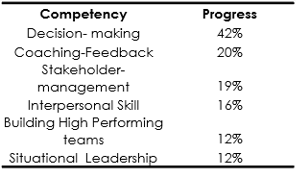Enhancing Excellence in IT: The Impact of Soft Skills Training

In the rapidly evolving realm of Information Technology (IT), where technological advancements occur at an unprecedented rate, the importance of having soft skills and undergoing soft skills training cannot be overstated.
Technical expertise serves as the foundation of IT proficiency, yet it is the mastery of soft skills that truly sets outstanding professionals apart.
This article delves into the crucial role of soft skills training specifically for IT professionals. It examines how refining these interpersonal attributes can elevate their careers and contributions to the industry.
The Importance of Soft Skills in IT

1. Effective Communication: Clear and concise communication is essential in IT projects, whether it’s sharing complex technical ideas with non-technical stakeholders or collaborating with team members. Employees with strong communication skills can articulate ideas persuasively, leading to improved project outcomes and stronger client relationships.
2. Problem-Solving Abilities: IT landscapes are full of challenges that require innovative solutions. Equipped with strong problem-solving skills, professionals can strategically analyze information, develop strategies, and effectively solve problems. These meta-skills are invaluable for technical problem solving and project success.
3. Adaptability and Flexibility: The IT industry is notorious for its rapid evolution, with new technologies and methodologies continually emerging. Professionals who embrace change and demonstrate adaptability thrive in this dynamic environment, readily adapting to meet evolving demands and capitalize on new opportunities.
4. Collaborative Spirit: IT projects and operations typically require collaboration in multidisciplinary teams, which require smooth collaboration with colleagues from diverse backgrounds. Product teams, marketing, UI/UX teams all work together with coders and testers. Those who excel in such environment encourage collaboration, share knowledge, and cultivate a culture of innovation within their organizations.
5. Emotional Intelligence: Empathy, self-attention, and interpersonal abilities are integral components of emotional intelligence. They are essential for powerful leadership and teamwork. IT experts with high emotional intelligence can navigate interpersonal dynamics adeptly, remedy conflicts constructively, and foster a fantastic work environment. They also become fit for senior roles where they can effectively manage IT teams under them and lead to overall productivity and success.
The Impact of Soft Skills Training

Investing in soft skills training gives significant benefits for both IT professionals and their organizations:
1. Improved productivity: By improving their soft skills, employees increase their productivity in their respective roles. Improved communication, problem-solving and business skills enable quality delivery and business success.
2. Career Advancement: Soft skills are crucial for career advancement in the IT industry. Employees who demonstrate strong skills in leadership, teamwork, communication and flexibility are well positioned to pursue leadership roles and expand their careers.
3. Improved customer satisfaction: Strong interpersonal skills enable IT professionals to build deeper relationships with customers, better understand their needs and deliver solutions that exceed expectations. This increases customer satisfaction. It enhances organizational reputation and trust.
4. Cultivating Organizational Culture: Soft skills training fosters a culture of continuous learning, collaboration and innovation in organizations. By employees who value empathy and teamwork, companies create positive workplaces where employees feel motivated and engaged.
Conclusion
To sum up, in an era defined by technological innovation and digital transformation, the importance of soft skills training for IT professionals cannot be overstated. Prioritizing the development of communication, problem-solving, adaptability, collaboration, and emotional intelligence enables professionals to unleash their full potential and drive organizational success, and thrive in the dynamic IT landscape. Mastering soft skills is not merely an option but a necessity in the journey toward excellence.












